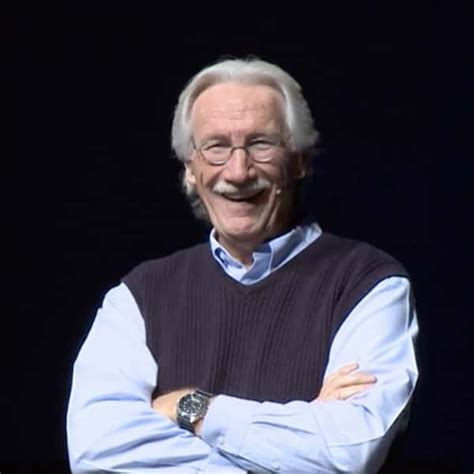A Quote by Alexander MacLaren
The apostolic church thought more about the Second Coming of Jesus Christ than about death and heaven. The early Christians were looking, not for a cleft in the ground called a grave but for a cleavage in the sky called Glory.
Related Quotes
Scripture is vast, and people can pick and choose what they emphasize, and so for hundreds of years verses that said that you are to welcome the stranger, that with Christ there's neither Jew nor Greek, male nor female, we've broken down the dividing wall with the original church, where Christians were first called Christian was the church of Antioch in which for the first time you had Jews, Gentiles of all different ethnicities come together as one people. That's when they were called Christians.
There are congregations on nearly every corner. I'm not sure we need more churches. What we need is a church. I say one church is better than fifty. I have tried to remove the plural form churches from my vocabulary, training myself to think of the church as Christ did, and as the early Christians did. The metaphors for her are always singular - a body, a bride. I heard one gospel preacher say it like this, as he really wound up and broke a sweat: "We've got to unite ourselves as one body. Because Jesus is coming back, and he's coming back for a bride not a harem.
Isn't it interesting that in Acts 11, at the end of verse 26, it says, "The disciples were called Christians first at Antioch." What I find interesting is the simple thought that the Christians didn't name themselves. But rather, they were called (or named) "Christians" by those watching their lives. I wonder if it would be the same today. Could someone look at your life or look at my life and name me a Christian? A humbling thought for sure.
We have no idea who we really are. Whatever glory bestowed, whatever glory is being restored, we thought the whole Christian thing was about... something else. Trying not to sin. Going to church. Being nice. Jesus says it is about healing your heart, setting it free, restoring your glory. A religious fog has tried to veil all that, put us under some sort of spell or amnesia, to keeup us from coming alive.
Jesus Christ, as the first-fruit of the Kingdom, began the work of conquering death on an individual basis, but we, as His church, will be the ones to complete the task. Jesus said (Matthew 28:18), "all power is given unto me in heaven and in earth," and the church today has that same power. Death will not be conquered by Jesus returning to earth. It will be conquered when the church stands up boldly and says, "We have dominion over the earth."
The Old Testament records the preparation for the coming of the Messiah. The Gospels record the coming of the Messiah, Jesus Christ our Lord. The book of Acts records the propagation of the gospel (the good news) concerning Jesus Christ. The Epistles (letters) explain the gospel and its implications for our lives. The book of Revelation anticipates and describes the second coming of Jesus Christ and the establishment of His eternal kingdom. From beginning to end, the Bible glorifies Jesus Christ and centers on Him. Its Christ-centeredness is one of its wonderful features.
I was like you are. I thought Jesus came and died on the cross. Jesus' being here was about his death and dying on the cross but it really was about him coming to show us how to do it. To show us the Christ-consciousness that he had and that conciousness abides in all of us. That's what I got. That's what I got.
Called on the people of New Hampshire . . . to confess before God their aggravated transgressions and to implore His pardon and forgiveness through the merits and mediation of Jesus Christ . . . [t]hat the knowledge of the Gospel of Jesus Christ may be made known to all nations, pure and undefiled religion universally prevail, and the earth be fill with the glory of the Lord.
For me, passion means whatever a person is willing to suffer for.'Apostolic passion,' therefore, is a deliberate, intentional choice to live for the worship of Jesus in the nations. It has to do with being committed to the point of death to spreading His glory. It's the quality of those who are on fire for Jesus, who dream of the whole earth being covered with the Glory of the Lord.
After the Church of Jesus Christ of Latter-day Saints was organized, there were only two churches upon the earth. They were known respectively as the Church of the Lamb of God and Babylon. The various organizations which are called churches throughout Christendom, though differing in their creeds and organizations, have one common origin. They all belong to Babylon
Thoughtful men, with hearts craving the truth, have come to seek in the Catholic Church the road which leads with surety to eternal life. They have understood that they could not cleave to Jesus Christ as the Head of the Church if they did not belong to the Body of Jesus Christ which is the Church. Nor could they ever hope to possess in all its purity the faith of Jesus Christ if they were to reject its legitimate teaching authority entrusted to Peter and his successors.
































